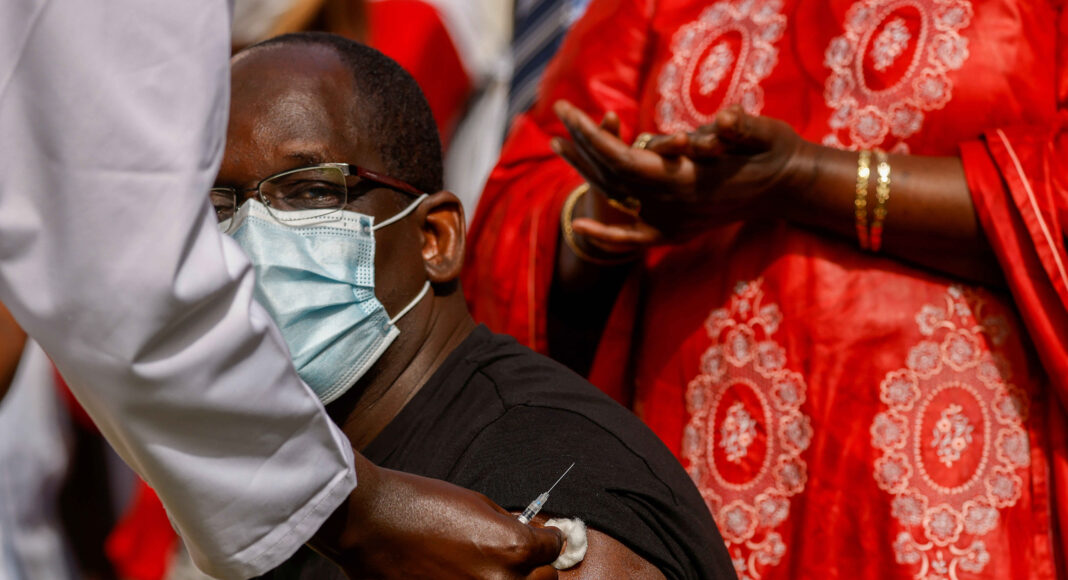By Nosmot Gbadamosi
At the G7 summit last week in Cornwall, southwest England, Western countries announced a plan to vaccinate the rest of the world that will rely on donations from richer countries.
G7 nations pledged 1 billion Covid-19 vaccine doses, but 11 billion are needed. Vaccine campaigners say the donations are insignificant. “We can’t donate our way out of this crisis,” said Anna Marriott, Oxfam’s health policy manager and policy co-lead for the People’s Vaccine Alliance. “A trickle of charity from rich countries is not going to end this pandemic,” she said.
Almost all African nations are pushing for World Trade Organization (WTO) member countries to waive intellectual property protections around Covid vaccines so that manufacturing can be done on the continent.
Vaccine shipments to Africa have almost entirely stopped, even as Covid rates in multiple African countries are rising rapidly. India’s Serum Institute’s suspension on exports as India battles the Delta variant has left the vaccine sharing initiative, Covax, running low.
“The threat of a third wave in Africa is real and rising,” said Dr Matshidiso Moeti, the World Health Organization (WHO) regional director for Africa. “While many countries outside Africa have now vaccinated their high-priority groups and are able to even consider vaccinating their children, African countries are unable to even follow up with second doses for high-risk groups.”
Around three percent of Africans have received a first dose, which pales in comparison to every other region in the world. In Asia, 29 percent have received a first dose, while Europe is at 55 percent and North America is at 65 percent.
India and South Africa’s proposal submitted last October to waive patent laws covered under the Trade-Related Aspects of Intellectual Property Rights, known as TRIPS, is still being considered by the WTO. While the Biden administration said it supports the TRIPS waiver, Germany is opposed to the emergency measure that experts say would rapidly expand vaccine access for developing nations.
Without the purchasing power of wealthier nations, Africa has found itself last in the queue. A patent waiver could allow five countries with production capabilities, Senegal, South Africa, Egypt, Morocco and Tunisia, to start manufacturing and supplying Covid-19 vaccines to the continent. Dr Tedros Adhanom Ghebreyesus, director-general at the WHO, said he hoped some African vaccine sites could start manufacturing by the end of this year.
In total, 50 million doses have been sent to Africa, a continent of 1.2 billion people. In Nigeria, where just over one percent of the 206 million population has been vaccinated, first doses have stopped to safeguard second jabs. Some countries, including Burkina Faso and Chad, have not vaccinated any citizens.
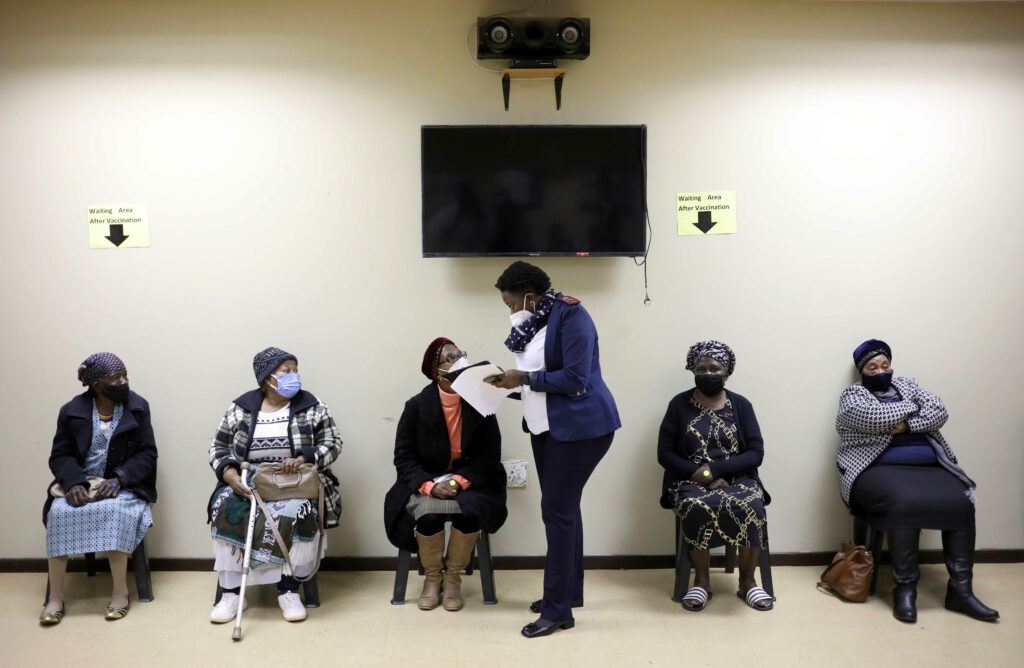
Patent waivers
African nations face a tough fight against Big Pharma. Germany, Switzerland and the United Kingdom—home to large pharmaceutical companies that are lobbying hard to hold onto the vaccine patents—continue to reject the waiver. Japan, another pharmaceutical powerhouse, doesn’t support the waiver but isn’t obstructing it.
In 1997, the South African government passed a law allowing the production of cheap, unbranded versions of expensive HIV and AIDS drugs. Western Big Pharma companies sued, but the South African government refused to back down, saying it had a duty to protect citizens. It now seems history is repeating itself.
Following months of pressure, U.S. president Joe Biden backed the waiver, prompting lobbyists representing pharmaceuticals including Pfizer and Johnson & Johnson to call his stance an “empty promise.”
The TRIPS waiver “flies in the face of President Biden’s stated policy of building up American infrastructure and creating jobs by handing over American innovations to countries looking to undermine our leadership in biomedical discovery,” the Pharmaceutical Research and Manufacturers of America, known as PhRMA, said in a statement.
Billionaire philanthropist Bill Gates assured the world that the debate around patent waivers was simply a distraction. “The thing that’s holding things back in this case is not intellectual property,” Gates told Sky News. “There’s not, like, some idle vaccine factory with regulatory approval that makes magically safe vaccines,” he said.
Oxford University, the research lab that developed the AstraZeneca vaccine, originally wanted to make it available via open license. However, The Bill and Melinda Gates Foundation persuaded Oxford to sign an exclusive deal with AstraZeneca. Gates is also an investor in German vaccine company CureVac.
In the wake of Biden’s waiver support, the Gates Foundation, which cofounded the Coalition for Epidemic Preparedness Innovation (CEPI), an organization that co-leads Covax, said in a statement it supports a “narrow” waiver during the pandemic.
Critics say Gates’ own fortune is built on patents rights, and Gates’ personal relationship with copyright law has harmed Covid-19 vaccine distribution around the world. Intellectual property waivers run “counter to the approach that the Gates foundation generally adopted towards encouraging access to medicines, which is not to disturb the dominant business model,” Rohit Malpani, a public health consultant, board member for Unitaid, and former director of policy and analysis at Médecins Sans Frontières, told Sahelien.com.
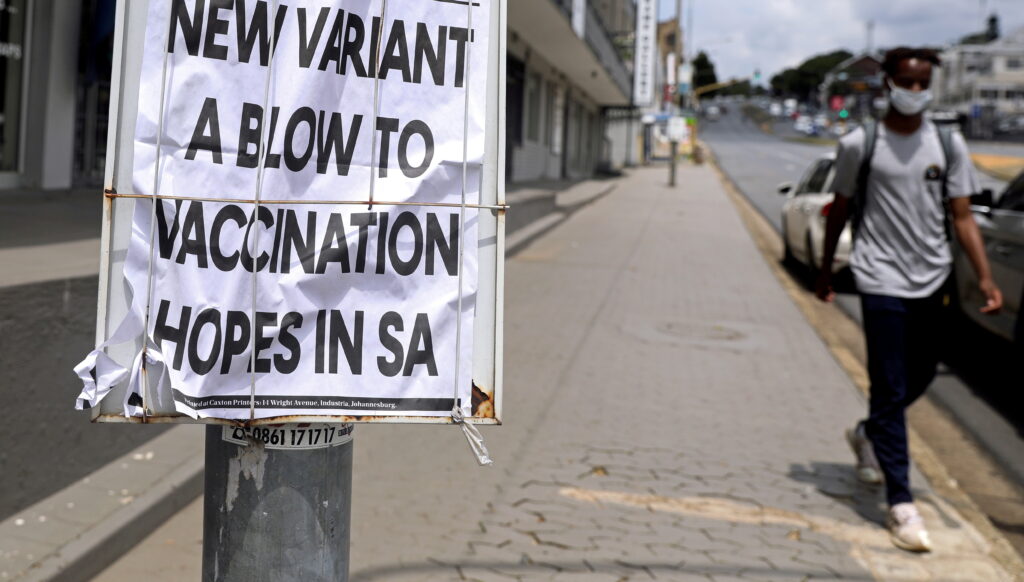
“It is really the nature of philanthropy to try to paper over the failings of systems that we’ve created instead of trying to reform them,” Malpani said.
The Gates Foundation has been crucial to providing global public health treatment in poorer nations, but Malpani questions its dominance. “Whether it is funding media that reports on this, funding civil society that advocates on this, funding the institutions that manage global health or holding intellectual property, they are everywhere,” he explained.
The logic of waiver skeptics is that IP rights do not obstruct vaccines production, but ensure their safety. Vaccine production often requires more than 200 components that are manufactured in different countries.
Anna Marriott called these arguments “tired.” “We know that many developing countries have extensive experience of producing vaccines. South Africa is already producing the Johnson and Johnson vaccine but currently has no control over where those vaccines get distributed,” Marriott told Sahelien.com.
“I do think it’s wrong that any private individual has such huge influence over global health just because they are incredibly wealthy,” she said.
Scientists are also calling for the transfer of key components. “The United States are now backing the patent waiver, but at the same time are banning the exports of components and things that are needed to make vaccines,” said Professor Wolfgang Preiser, a virologist at Stellenbosch University in South Africa.
“You can say here is the recipe, please cook it yourself, but I’m not going to give you the pot or the raw materials,” he told Sahelien.com
Manufacturers in five African countries
U.S. export restrictions were put in place under the Defense Production Act, invoked by former President Trump during the start of the pandemic, which the Biden administration has said it will relax. Under the act, manufacturers must fulfill domestic needs on items such as plastic bioreactor bags, vials, filters and syringes before export.
“Some of those crucial inputs are also protected, or the production is being restricted by the same kind of monopolies and intellectual property roles,” Marriott explained further. “There are 1,800 patents on these bioreactor bags.”
Preiser believes South Africa is in a good position to start manufacturing for the rest of the continent. “With a pandemic and widespread disruption, you can’t say that India is the drug manufacturers for the world,” he said.
He warned that “very few countries have the scientific and technological expertise and are wealthy enough to do the whole thing on their own.” South Africa and other African nations would need capacity building and funding to manufacture viral vaccines that are expensive to make, he said. “For example, one thing that you should not use indiscriminately is fetal bovine serum, which is a core ingredient for cell cultures, normally because of the BSE risk,” Preiser said. “You need to have it from a country which is known not to have BSE cattle.”
Biovac Institute in South Africa, the Pasteur Institute of Dakar, Senegal, the Pasteur Institute of Tunis, Tunisia, and Pasteur Institute of Algeria are facilities with potential to manufacture vaccines. Senegal’s President Macky Sall tweeted last month after meeting with Brussels officials that he hoped to strengthen EU partnership “through the production of Covid-19 vaccines in Senegal.” Egypt is already preparing to manufacture China’s Sinovac vaccine.
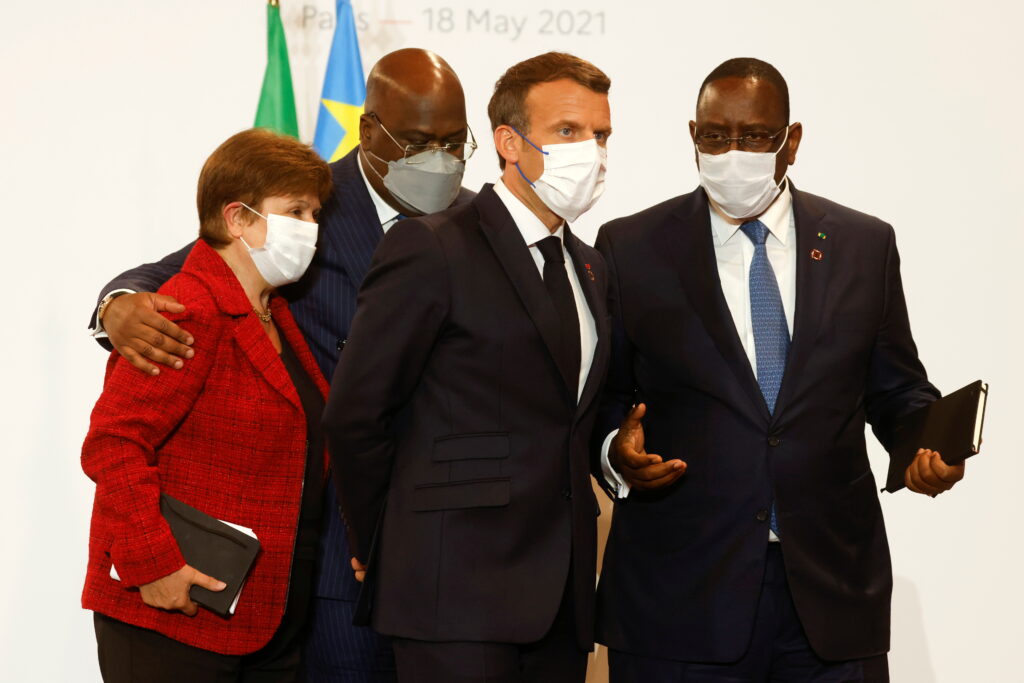
Covid-19 vaccine makers have reported staggering profits during the crisis. British-Swedish AstraZeneca and the U.S. pharmaceutical Johnson & Johnson agreed to sell vaccines at no profit until the end of the pandemic.
But U.S. messenger RNA (mRNA) vaccines manufacturers Pfizer and Moderna have raked in enormous profit on the vaccines they’ve produced. Pfizer, which collaborates with German maker BioNTech, said it expects sales of at least $26 billion this year. Moderna had a profit of $1.2 billion in the first quarter of 2021.
So far nine new billionaires were created from Covid-19 with a combined net wealth of $19.3 billion – enough to fully vaccinate everyone in lower income countries 1.3 times, according to recent analysis by the People’s Vaccine Alliance. Topping the list of newly mega-rich are the chief executives of Moderna and BioNTech, each with a personal wealth of more than $4 billion.
Pfizer committed 40 million doses to Covax, but has only shipped less than 2 million of those doses so far. Marriott said this equates to less than a day’s production.
Failure of Covax
There are other vaccines available to African nations. The WHO recently approved two vaccines developed in China. Some scientists are skeptical about those two, as well as Russia’s Sputnik V, because of hasty approvals by their governments without clinical trials, though real-world data shows positive results for Sputnik V.
This has engineered an over-reliance on AstraZeneca and Johnson & Johnson by Covax despite production capacity, blood clotting issues leading to vaccine hesitancy, and lower efficacy against the Delta variant.
Manufacturers have also kept vaccine prices opaque. Even with adoption of an at-cost model, South Africa said it bought Oxford-AstraZeneca doses at more than double the price paid by most European countries. AstraZeneca says it includes cost of delivery in its pricing and that is what explains different costs for different countries.
In response to Sahelien.com’s questions on whether Covax would broaden its vaccine portfolio following WHO approval of China’s vaccines a spokesperson for GAVI, which runs Covax said it was “in dialogue with several manufacturers, including Sinopharm and Sinovac, to expand and diversify the portfolio further and secure access to additional doses.”
A spokesperson for GAVI explained in a statement, “we have procured enough vaccines to protect half the adult population in 91 of the world’s lower income economies, including 46 in Africa, by early 2022. What we need now, is for all countries with excess supply to share doses with Covax, and to do so sooner rather than later.”
The GAVI spokesperson argued that patent waivers would not solve the issue. In response to a question on whether Covax would support a patent waiver, she said, “every effort must be taken to expand both the number of vaccine producers and their geographical distribution.” However, she added, “the great challenge is that it may not lead to more doses and could lead to fewer, as it ignores the fact that vaccine production involves incredibly complex manufacturing processes which requires deep knowledge and experience. For example, the vaccine company Moderna announced in 2020 that it would not enforce any infringements on its patents made by anyone making vaccines to combat the pandemic. Nobody has since come forward to take advantage.”
The spokesperson did not explain how patent waivers could lead to fewer vaccines. African manufacturers are mainly looking to make AstraZeneca and Johnson & Johnson vaccines, neither of which rely on the more difficult to reproduce mRNA technology. Covax, the spokesperson said, would be taking the approach described by WTO’s director general Dr Ngozi Okonjo-Iweala as a “third way” and work towards an access to technology and knowledge transfer.
Covax has been a failure, according to campaigners. It is 190 million doses short of its target, the WHO reports. “It had billions in public money it could have used as leverage to ensure that the vaccine science was shared so production was scaled up,” said Marriott. “It instead tried to compete in a very difficult market to secure vaccine supplies in competition with rich nations,” she added.
The Gates Foundation did not answer questions regarding its investment in CureVac but instead directed Sahelien.com to its press release on a “narrow waiver” support.
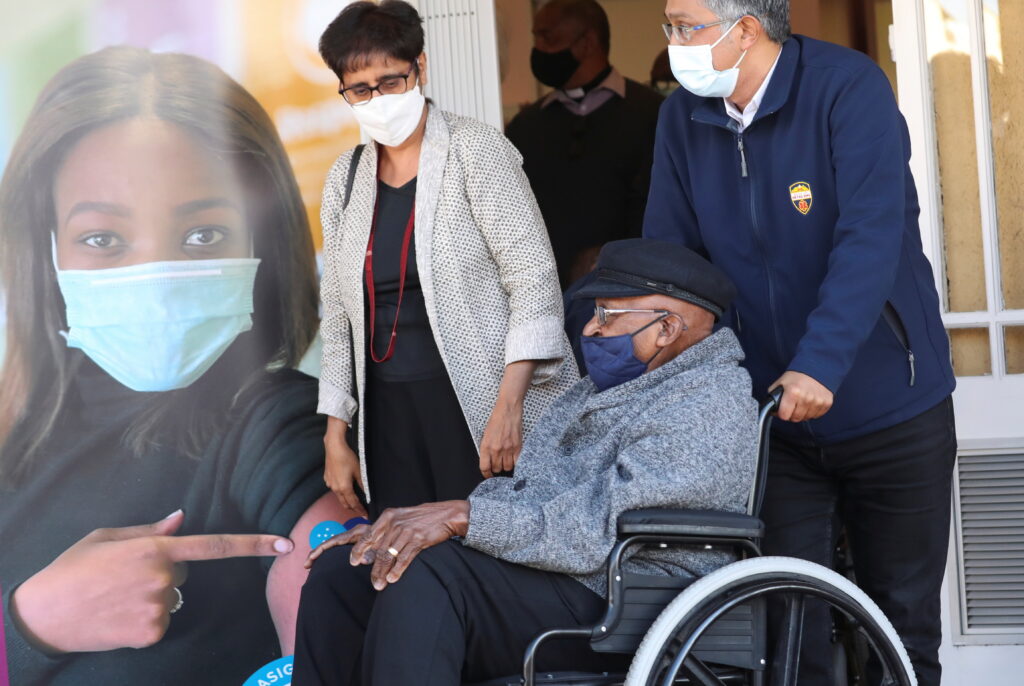
“It should’ve already been adopted”
Brussels has pledged 1 billion euros towards vaccine production in Africa, including supporting the establishment of a continent-wide drug regulator, the African Medicines Agency, that was proposed in 2014 but failed to materialize.
It broadly aligns with an African Union goal set in April for up to 60 percent of routine vaccines to be supplied from within the continent by 2040. Just one percent is currently produced in Africa.
Malpani noted the patent waiver was proposed last year and is still being discussed. “It should’ve already been adopted,” he said. In the United Kingdom, where almost 80 percent of adults are vaccinated, Boris Johnson is facing calls to reconsider his opposition to the patent waiver.
To fight future pandemics, every region needs the production know-how to be able to produce vaccines. Critics say wealthier nations can no longer continue to put barriers in the way of poorer countries. “Intellectual property sits at the very heart of whether you want to reform a broken system or you simply want to profit off it,” said Malpani. “Either agree to it or at least agree not to stand in the way of it.”
EDITOR’S CORRECTION: The first sentence has been corrected to “At the G7 summit” instead of “At the G7 countries”.
UPDATE: The story has been updated to reflect the Covax spokesperson’s full comments on the Moderna vaccine.

